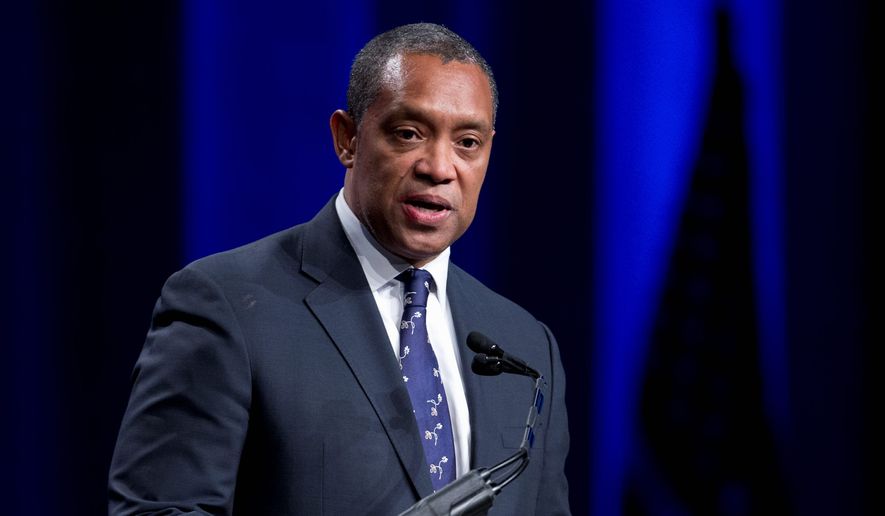A D.C. Superior Court judge ruled Friday that D.C. Attorney General Karl Racine can intervene in a case that will determine whether the District’s Board of Elections was properly constituted when it approved a minimum-wage ballot measure for the general election this autumn.
Mr. Racine is fighting a January decision by Judge Maurice Ross, who ruled the ballot measure — which would raise the minimum wage to $15 an hour by 2020 if affirmed — was invalid because the two BOE commissioners who approved the initiative had long overstayed their terms.
But Mr. Racine argued that, under the District’s charter, the board was properly constituted when it approved the ballot initiative.
“The residents of our city have a clear interest in ensuring not only that they are allowed to vote on this ballot measure, but also that other actions of the Board of Elections are not called into question,” Mr. Racine said in a statement Friday.
Election board members can remain active until they are replaced because the board is an independent agency with rules separate from those of subordinate agencies, according to Mr. Racine.
And even if the court believes the board was improperly constituted, Mr. Racine said their actions on the ballot initiative remain valid because of the legal doctrine known as the de facto officer doctrine.
“The de facto officer doctrine confers validity upon acts performed by a person acting under the color of official title even though it is later discovered that the legality of that person’s appointment or election to office is deficient,” Mr. Racine wrote to the court last week.
The confusion about whether the board was legally seated dates back to August, when Harry Wingo, then-president of the D.C. Chamber of Commerce, filed a lawsuit against the board in an effort to get the minimum wage initiative off the November ballots.
Mr. Wingo argued that the initiative should be removed, in part, because the board lacked authority since its members had exceeded their terms as well the District charter’s 180-day overstay period when they approved the measure.
Rudolph McGann, the board’s attorney, made a similar argument to the attorney general, but on Jan. 29, Judge Ross ruled in favor of Mr. Wingo, saying that board members had overstayed their term limits when they approved the ballot initiative. The board, along with Mr. Racine, quickly filed a motion asking the judge to reconsider the ruling.
In a memo to the court, the board referenced a D.C. Council report from a 1998 law clarifying appointments by the mayor.
“There is statutory language that prevents any individual from serving in a holdover capacity for more than 180 days after the expiration of the their term, unless otherwise provided by law (such as a provision that allows a Board of Elections and Ethics member to serve until his or her successor is in place),” the council report says.
It’s unknown when Judge Ross will rule whether the attorney general’s argument is strong enough to reverse the January decision, but if it isn’t, the board’s past decisions on citywide elections and marijuana legalization could be in peril as well.
• Ryan M. McDermott can be reached at rmcdermott@washingtontimes.com.




Please read our comment policy before commenting.